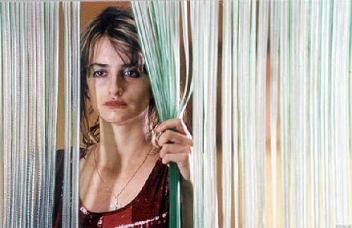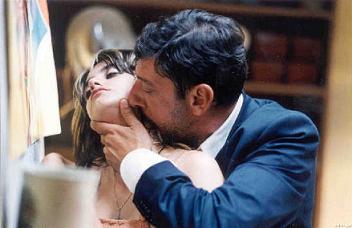Don't Move
(Non Ti Muovere)


Given the track record of Penelope Cruz, it seemed about time for her to take a role where she 'uglies' herself up. After all, isn't this the best way for an attractive star to prove she is more than her looks? Charlize Theron certainly did so with Monster. In Don't Move, Cruz speaks Italian, has unruly hair, fake teeth, and bad makeup. This complements well with an atrocious script, something that Cruz cannot seem to shake. Ever since she started making films in English, her selection of films has been less than desirable, typically because of the script. Basically, they usually stink. Don't Move, based on the novel by Margaret Mazzantini, is more of the same. The story tries to be a grand sweeping romantic epic, but comes off as exasperating, and worse, sometimes offensive. This is the story of Timoteo (Sergio Castellitto, Mostly Martha, Va Savoir), a man torn between two women, his wife Elsa (Claudia Gerini, The Passion of the Christ, Under the Tuscan Sun), and Italia (Cruz, Head in the Clouds, Noel).
Don't Move takes place in two time periods. In the present, Timoteo, a successful doctor, stands by as his daughter undergoes surgery after she suffered head trauma in a motorcycle accident. He looks outside the window and thinks he sees a woman, which triggers various flashbacks to the past. In the past, his marriage to Elsa is in a funk. He travels often to various conferences, and at one of them, his car breaks down. Italia offers the use of her phone, and Timoteo, tired, hot, and drunk, assaults her in her ramshackle house and leaves. Once home, he lies to Elsa, feels extremely guilty, and returns to apologize to Italia. Instead, he rapes her again. What a great guy. He even takes the time to leave her money, treating her like a whore. But something strange begins to happen, and Timoteo and Italia begin to fall in love.
Uh, okay. Castellitto, who directed and adapted with Mazzantini (Libero Burro) want this to be a movie about how loneliness brings two very different people together. Timoteo has a great job, beautiful wife, and large house, but there is little love in his life. There is emotional distance in his marriage, and he wants children while Elsa does not (obviously, she changes her mind). Italia is the ugly girl. She works a menial job and has no friends. The two are kindred spirits, who can seek solace in each other. As Timoteo visits more, the encounters become less physically aggressive and more tender. He even reaches the point where he wants to leave Elsa.
Castellitto and Mazzantini steep the film in romantic melodrama, with some obvious symbolism in the name of Italia. It's too bad that the film gets off to a very distasteful start, and it's hard to ever feel bad for Timoteo given his actions towards Italia. While Castellitto outlines all the reasons his character falls for Italia, it is not credible on screen. He spends a great deal of time developing their relationship, but it still feels false. This great passion between the two is missing, which has the unfortunate effect of making the film dull, and one feels bad for Elsa, rather that sympathizing with Timoteo. To shake things up, complications ensue in both of Timoteo's relationships, forcing him to choose between love and stability. Yawn.